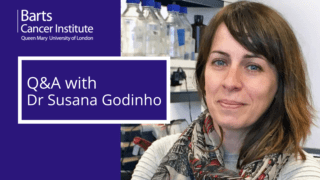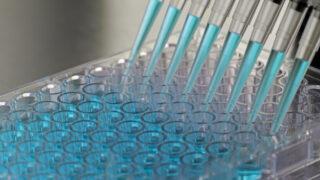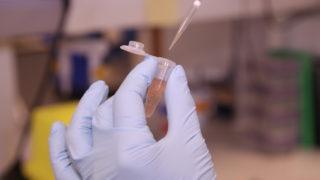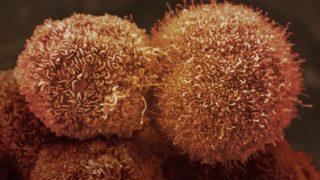Category: Publications
Search News
Categories
Archives
Researchers use machine learning to rank cancer drugs in order of efficacy
25th March 2021
Researchers from Barts Cancer Institute, Queen Mary University of London, have developed a machine learning algorithm that ranks drugs based on their efficacy in reducing cancer cell growth. The approach may have the potential to advance personalised therapies in the future by allowing oncologists to select the best drugs to treat individual cancer patients.
Read moreCancer cell communications
12th March 2021
We spoke with Dr Susana Godinho, Group Leader in Barts Cancer Institute’s Centre for Cancer Cell and Molecular Biology, to find out about her recent paper published in Current Biology. Dr Godinho and her team set out to identify why cancer cells carrying extra centrosomes exhibit increased release of communications packages known as small extracellular vesicles.
Read moreNew class of drug reduces risk of death in bladder cancer
15th February 2021
A new type of drug that helps target chemotherapy directly to cancer cells has been found to significantly increase survival of patients with the most common form of bladder cancer, according to results from a phase III clinical trial led in the UK by Professor Tom Powles from Barts Cancer Institute, Queen Mary University of London and Barts Health NHS Trust.
Read moreResearchers develop virus-based treatment platform to fight pancreatic cancer
27th January 2021
Researchers from Barts Cancer Institute, Queen Mary University of London, and Zhengzhou University have developed a powerful therapeutic platform that uses a modified virus for the treatment of pancreatic cancer. By using the virus in combination with other drugs, the treatment significantly extended survival in preclinical models of pancreatic cancer.
Read moreCAR T cell therapy for pancreatic cancer
22nd January 2021
Researchers from Barts Cancer Institute, Queen Mary University of London, have identified a protein that may represent a novel therapeutic target for the treatment of pancreatic cancer. Using this protein as a target, the team successfully created a CAR T cell therapy – a type of immunotherapy – that killed pancreatic cancer cells in a pre-clinical model.
Read moreStudy receives prize for Research Excellence in Pathology
14th January 2021
Congratulations to Barts Cancer Institute’s Professor Hemant Kocher, who is co-lead author of the paper selected by The Journal of Pathology for the Jeremy Jass Prize for the calendar year 2019.
Read more





